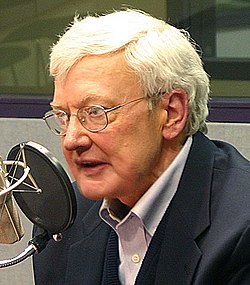Website policies and features
This section needs additional citations for verification .(November 2023) |
Wikipedia discloses spoilers in its articles without giving advance warning. Mathew Prichard criticized Wikipedia for presenting spoilers for his grandmother's play The Mousetrap . Andrew Jarecki argued that Wikipedia should have spoiler alerts; the ending of Catfish , a documentary he had produced, was posted on Wikipedia before its theatrical release because the film was shown at the 2010 Sundance Film Festival. Jay Walsh, a Wikimedia Foundation spokesperson, said that Wikipedia is meant to be an exhaustive knowledge source and thus must contain spoilers. [5]
Certain websites employ spoiler formatting, allowing certain details to be hidden inline with text, which the user may reveal by mousing over, highlighting or clicking the text. Websites that make use of Markdown formatting, such as Discord and Reddit, have allows for syntax extensions such as ||spoiler|| or >!spoiler!<; websites which use a rich-text editor allow for inline formatting in this style. [6] [7]
On Usenet, the common method for obscuring spoiler information is to precede it with many blank lines known as 'spoiler space' – traditionally enough to push the information in question on to the next screen of a 25-line terminal. A simple cipher called ROT13 is also used in newsgroups to obscure spoilers, but is rarely used for this purpose elsewhere. [2]
Most discussion websites provide a means of tagging certain threads as containing spoilers for those who wish to discuss a fictional work in depth, including the outcomes of events and the handling of the narrative resolution. Social media platforms such as Twitter and Tumblr allow posts to be given hashtags, allowing users to avoid certain spoiler discussions by making use of a blacklist. Due to the ad-lib methodology of tagging, however, this is imperfect and open to false positives and false negatives. [8]
Some have felt compelled to avoid participating on public websites altogether, set up "closed" websites to exclude those who are sensitive about spoilers, or decided they had to unilaterally blog at the expense of public exchange.[ citation needed ]
